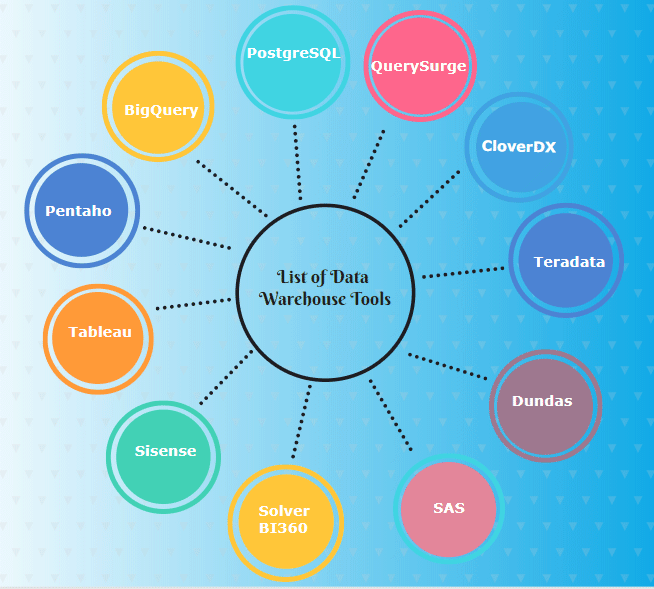Excited to explore about data Warehouse tools? Today, we’ll show you best 10+ data Warehouse tools of 2022 that you should actually know. A vital part of big data and data analytics is a data warehouse tool. A data warehouse is an intelligent data store that feeds analytics software, enabling users to mine data for market research. Data marts and massive data storage repositories (such databases) are frequently sandwiched by a data warehouse. Data warehousing software enables reporting and analytics of various kinds, from business intelligence to predictive analytics, and is frequently used with ETL tools.
Table of Contents
- What is Data Warehousing Software, exactly?
- How Do Data Warehouse Programs Operate?
- Best Data Warehousing Software • How to Choose a Data Warehouse Tool
- Comparison Table for Warehouse Tools by Date
- What is software for data warehousing?
What is Data Warehousing Software?
For analysis and business insight, data warehouse tools gather, purge, and organise copious volumes of data from many sources. Today’s business data analytics processes are managed in large part by data warehouse software. These tools are compatible with a broad range of technologies, such as DMSA, DMA, and DBMS (Database management system) (Data Management System and Analytics).
What is the Process of Data Warehouse Software?
Data warehouse tools are increasingly utilising machine learning and artificial intelligence to improve efficiency. A sophisticated technology known as the enterprise-grade CPD (cloud data platform) today mixes structured and unstructured data into formats that are helpful for analytics. The amount of money invested in data warehouse tools is rising dramatically. The data warehouse industry is anticipated to increase in size from its current $21 billion valuation to $34 billion by 2025. Amazon Web Services Redshift and Microsoft Azure’s SQL Data Warehouse are the players with the quickest rate of growth.
These two data warehouse companies control such a big portion of growth that rivals split a little pot. These two market leaders do share a trait: they are both cloud computing businesses. Data warehouses are moving to the cloud, much like a lot of other things that were previously only in the data centre, while there are still plenty of in-house and hybrid cloud data warehouse tools available. Effective data mining is made possible by placing a data warehouse between the data source and the users who use it, together with the various data warehouse tools.
How to Pick a Tool for a Data Warehouse
A data warehouse tool is the clear winner if there was ever a market where choosing a product necessitated doing extensive research because of the intricacy and variety of these tools. This is mainly due to the exponential investment in the field of data analytics, which leads to an ongoing increase in product variations.
Additionally, it’s due to the numerous ways in which data can be stored and filtered. When choosing a data warehouse tool, consider the following questions:
1.Can you use the data warehouse tool with your current system?
No matter how powerful the data warehouse solution is, it is useless if it is not tailored to your company’s requirements. Is the data warehouse tool prepared to handle your particular data types, such as unstructured or structured?
Does the necessary maintenance fit with the staff you have on hand?
Is your current infrastructure a component of the “product ecosystem” that incorporates this data warehouse?
2.Do you have a data center on-site or in the cloud?
In a way, the fight between on-premises and the cloud is already decided because almost all data warehouse tools are accessible in the cloud. So, if you want cloud-based, you’ll get it. Many companies, including perhaps yours if you work for a large corporation, operate both on-premises and on the cloud.
In this situation, a data warehouse appliance that combines hardware and software can be what you seek. Alternately, you might look for a solution that has historically been installed on-site, such as a conventional DBMS (database management system) or a specialised analytics DBMS.
3.How much does the data warehouse tool cost?
The data warehouse pricing situation is, like the general data warehouse pricing situation, highly complex. Although pricing is shown in the vendor comparison chart below, it is unlikely to do a “apples to apples” price comparison. This is due to the reality that the overall platforms of two suppliers who, let’s say, price “$.25 per hour” are generally extremely different.
One might excel in machine learning, whilst the other has focused on, let’s say, providing the most features. The true ROI of a data warehouse for your company is determined by this context and how it fits with your business.
4.What is the market strategy of the data warehouse vendor?
Actually, this is the major issue. Most data warehouse purchasers are more interested in a vendor’s entire market strategy and how it aligns with their own than even crucial considerations like price and data type.
Is your approach so cloud-centric that you need a significant cloud provider that also offers data warehousing, for example? Or do you want a provider with a history of using internal solutions because your datacenter is so important to your infrastructure? When used in conjunction with the various components of the data flow, data warehouse tools like ETL make data analytics far more effective.
Following Best Data Warehouse Software as given below:
10+ Data Warehouse Tools to Enhance its Productivity
1.Amazon Web Services
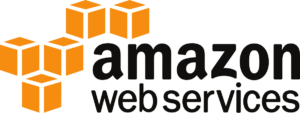
For businesses that require top-tier advanced capability, have the funding for a top tool, and have internal people that are able to manage AWS’s extensive menu of solutions, Amazon Redshift is an excellent choice. The most effective data warehouse solution would probably be Amazon Redshift if the sheer volume of cloud-based data warehouses dictated the market leader.
Additionally, given AWS’s enormous market share in the cloud industry—clearly making it the leading cloud provider—the business has a robust toolkit to enhance Redshift’s capability. Redshift Spectrum, one of many similar data warehouse tools, has sophisticated serverless capabilities that searches data in both local storage and the enormous Amazon S3 database.
Additionally available are Amazon Kinesis, a service for data analytics, and Amazon Elasticsearch, a cloud-based search engine. AWS Glue, a service that manages metadata, is also noteworthy.
Pros:
- Customers will always have access to a solution with the highest level of functionality because to AWS’s big pockets and aggressive commitment to expanding its solution portfolio.
- AWS places a high premium on scalability, making it a leader among “hyper-scalers” (the top cloud providers).
- There are an almost infinite number of third-party suppliers and solutions designed to work with AWS’s offering.
- Any client looking for a certain specialised data warehouse tool will almost likely discover it.
Cons:
- The AWS interface is renowned for being difficult to use.
- In addition to its complexity, AWS’s propensity for continuous growth – fast even by the standards of the technology industry – necessitates regular research on the part of internal workers.
2.Oracle

Oracle is without a doubt the industry leader for database tools, and this dominance also extends to the closely related market for data warehouse tools. The vendor’s data management products are regarded by many as being the most capable and sophisticated ones available. In summary, Oracle is frequently the default option for major businesses with sizable budgets; many Fortune 500 corporations view Oracle as standard infrastructure.
Oracle had a slow start in the cloud but has now significantly caught up. Contrary to its early scepticism about the cloud, Oracle has since made significant investments to improve its cloud competency and has been successful in doing so.
The company’s cloud-based Autonomous Data Warehouse offers the decreased overhead often associated with cloud-based goods. Any company adopting Oracle data warehouse tools will have a wide range of reliable tools at its disposal. This comprises the esteemed Oracle Exadata Database Machine and the Oracle Big Data Management System. The organisation currently offers a wide range of cloud-based options, and each one is usually complemented by an on-premise data tool.
Pros:
- High-end features integrated into its data warehouse tools
- Due to the widespread use of Oracle, there is a sizable cohort of authorised professionals.
Cons:
Has caught up in the cloud, but it was a late entrance. It can be pricey. Licensing concerns cause customer complaints.
3.Microsoft

Microsoft is a market leader in the general cloud industry, and its data warehouse capabilities are quick and smart, maximising the scalability and flexibility of the cloud. Microsoft’s emphasis on hybrid cloud is significant for many businesses in the present multicloud scenario; its menu of data warehouse tools works in this heterogeneous environment, in the cloud or on-premise. Given the adaptability of its product range for data warehouse tools.
Microsoft is an excellent option for large businesses or SMBs with a sizable budget. The firm’s data management systems are renowned for excellent workload management and their capacity to manage big data warehouses. The vendor’s strong dedication to data governance, a feature of data warehouse tools that is crucial and is becoming more so with time, is particularly remarkable. Azure Databricks, Analytics Platform System, Azure HDInsight, Azure Data Factory, and – an old standby – SQL Server are some of the company’s data warehouse tools.
Pros:
- A big and strong complementing set of data warehouse tools; • Excellent usage of cloud-based capabilities for data warehouse tools;
- Be able to create lasting consumer loyalty
Cons:
- Some users expressed misunderstanding about price; • It can be difficult for lengthy deployments
4.IBM
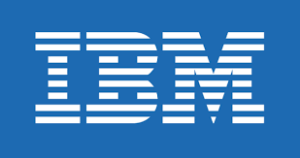
With a wide variety of data warehouse and data management tools that are widely adopted by their install base The business is highly known for its vertical data models, in-database analytics, and real-time analytics, which are crucial for the data warehouse market.
IBM is a top choice for large enterprise customers because of IBM’s expertise in the cloud, nearly all of its data warehouse solutions can be used in either an on-premises or a cloud environment; they are all set up for a hybrid environment.
For major enterprise customers who are still moving core workloads to the cloud, this is crucial. The business offers solutions with hyper-scale data analytics capabilities and makes it possible for ML algorithms to support cognitive analytics. An important competitive advantage in the data warehouse market, where products like Hadoop and Spark are employed, is that historically among all legacy tech suppliers, IBM has been the most focused on interoperability and open standards. The managed data warehouse product DB2 Warehouse on Cloud is noteworthy among its product line’s offerings.
Pros:
Not enough data warehouse offerings, which leaves almost all use cases unmet. Geared towards multicloud and hybrid cloud scenarios.
- The strong functionality anticipated of a supplier concentrating on Fortune 500 customers.
Cons:
- Self-service capabilities are not viewed as a strength given the advanced nature of data warehouse tools.
5.Teradata

Teradata, which was established in 1979, is unquestionably a reputable legacy supplier of data warehouse tools. Its product line is well regarded, intelligent, and mature, and it is undoubtedly designed for today’s high-end businesses that want cutting-edge solutions and have the financial resources to pay for them.
Teradata’s data warehouse solutions are, to its credit, suited for the multicloud and hybrid enterprise world of today. The vast range of tools offered by the company can be used on-premises, in the public cloud, or with the private-public hybrid model that is today so common among larger businesses. The IntelliBase and IntelliFlex appliances are among its product offerings for businesses looking for a hardware support solution.
The company’s software products, including the flagship Vantage package, which includes an analytics platform supported by a SQL engine and machine learning capacity.
Additionally, Teradata provides in-database analytics, AI and ML automation functionalities, and full compute processing capabilities.
Pros:
- Strong for hybrid and multicloud scenarios, automation for AI and ML is a crucial advantage as these technologies continue to develop, and ease of usage are all positives.
Cons:
- Not well-known for flexible pricing and contracts. Geared toward large, advanced enterprise users rather than SMB.
6.SAP

No one claims that the 1972-founded German software behemoth SAP, one of the leading legacy vendors, is stuck in the past.
First, SAP is a major player—possibly the dominating vendor—even among industry leaders for data warehouse tools. Basically in order to stay ahead of the competition, SAP has integrated machine learning and artificial intelligence capabilities into its flagship SAP HANA solution, a top data warehouse tool. For instance, TensorFlow algorithms can be used with HANA. An in-memory database management system is also available with HANA (DBMS).
Additionally impressive: SAP has established a wide network of partnerships with significant cloud service providers, including the market giants AWS, Azure, and Google Cloud, as well as with fast-rising rivals like Alibaba. SAP is essentially a cloud computing firm by default. The SAP Data Warehouse Cloud and the Hadoop-based SAP Cloud Platform Big Data Services are two of its many cloud-based data warehouse solutions.
Pros:
- Enhanced performance in its flagship product thanks to the use of AI and ML.
- HANA is well renowned for its scalability and performance, making it one of the top vendors even among data warehouse leaders. • Uses a wide network of cloud providers to deliver its solutions over the cloud.
Cons:
- Not a cheap fix; some people have complained about customer service
7.Google

It should come as no amaze that Google is renowned for its data management skills given its hegemonic status as a search engine. Its data warehouse tools are a reflection of its cutting edge, or more accurately, next generation, data management for analytics capabilities.
While it’s true that a lot of its tools were created to support its consumer search business, the company has substantially invested in making them enterprise-class tools for picky customers. Its data warehouse products are renowned for both their excellent performance and usability.
The Google BigQuery platform stands out in particular because it is capable of handling a variety of advanced enterprise use cases. Businesses can utilise BigQuery’s machine learning features to support everything from data science queries to requirements for legacy data warehouses. Google Sheets and Cloud BigTable are two additional essential data warehouse tools.
Pros:
- After a sluggish start, Google Cloud is increasing its market share, indicating further investment in its data warehouse tools.
- Market-leading capabilities for AI and ML.
- Extremely scalable platform, perhaps even among the most scalable among top data warehouse providers.
Cons:
- BigQuery may need a large investment in understanding, although many Google products are easy.
- Some users have expressed worry about the support.
8.Snowflake

Snowflake, a new young player in the data warehouse tools market, was founded in 2014. In essence, it was able to research the competition and provide a platform that was more modern. This newcomer is already regarded as the industry leader and is renowned for its competitive pricing. An automated, cloud-based platform is provided by the business.
A fully managed data warehouse on top clouds like AWS and Azure is its standout product. Its system is impressively designed with resources separated, allowing one component to react and scale based on its own workload demands. The end result is a solid ability to manage a heterogeneous infrastructure that is always changing. Some users report that Snowflake enables them to support a wider range of use cases and a larger number of total workloads.
Being ACID-compliant (atomicity, consistency, isolation, and durability) allows data warehouses to handle transactions more smoothly. Snowflake supports a broad range of formats, including Parquet and Optimized Row Columnar, in addition to being ACID-compliant. The business highlights a few significant alliances that have helped it expand its product line.
Pros:
- A mixed multicloud infrastructure is fully utilised by automated offers, which are renowned for their quick and highly flexible scalability.
- A wise option for businesses that are cost-conscious
Cons:
- Snowflake is a newer vendor than other data warehouse vendors, therefore as it continues to expand quickly, it might experience some teething pains.
- Although the company has an impressive product line, it lacks the long history of many of the well-known brands in this industry.
9.Cloudera

Cloudera’s data warehouse portfolio includes some open source icons with deep roots, including Spark, Impala, Kudu, and of course Hadoop. This openness is mirrored in the various operating environments that Cloudera uses, including bare metal, private clouds (for businesses that still rely on them), and on-premise and completely multicloud. Cloudera is regarded as being proficient with data lake installations.
To its credit, Cloudera uses artificial intelligence and machine learning extensively; it’s a crucial component of the business’s strategy. Workloads can be increased up automatically thanks to ML intelligence. Cloudera can be used in a variety of application cases across many sectors. The company’s Cloudera Data Platform is designed to manage data from the edge, whether it is organised or unstructured, while remaining cost-effective.
With a crucial AI component, it switches workloads between internal and cloud analytics in a novel way. Consistency in security and data governance are also a focus, in addition to Cloudera’s openness. Cloudera and rival Hortonworks merged in a significant move for the market. The two businesses’ combined product portfolio offers synergy, not to mention the elimination of a rival.
Pros:
- The focus on AI and ML by Cloudera should maintain its data warehouse portfolio at the cutting edge.
- Flexible and expanding product portfolio;
- Reputation for providing helpful training.
Cons:
- Despite pooling their resources, Cloudera and Hortonworks’ merger has not been without its growth pains.
10.Micro Focus

The flagship Vertica Analytics product from Micro Focus is built to integrate with AWS, Microsoft Azure, or Google Cloud in order to adapt to the evolving multicloud computing environment. For larger businesses that rely on a hybrid cloud to bridge the gap between the public and private clouds, it is even designed for VMware clouds.
Massively parallel processing (MPP) is available in Vertica, which can also be scaled up to handle heavier analytical workloads. Vertica also links to Spark, Kafka, and Hadoop for your infrastructure’s open source components. A machine learning component that aids in mining higher level analytics use cases is integrated into its MPP capabilities.
Micro Focus, a UK-based company, employs a “shared nothing” architecture that makes use of a distributed computing concept. One benefit of shared nothing is that it decreases a system’s single points of failure, increasing the system’s overall availability. High availability is a well-known property of Micro Focus and is important for any data warehouse technology.
Pros:
- Works with virtually any IT infrastructure and cloud platform.
- Effective application of data science and machine learning technology; • Micro Focus is renowned for being user-friendly.
Cons:
- Some users desire more automation for self-service.
Additional Market Leaders: Data Warehouse Tools
1.MarkLogic

Is renowned for leveraging automation to aggregate and efficiently mine data from a variety of data sources using a clear and effective data hub method. Unquestionably a top vendor.
2.MongoDB

Extremely well-liked option, employed by thousands of businesses. A few of the biggest data centres in the world use MongoDB, one of the genuine success stories in open source. Strong cloud hybrid.
3.Talend

The key tool for a data warehouse, according to Talend, is data integration of various types and has an open source component. Free downloads of the Talend Open Studio are available.
4.Informatica
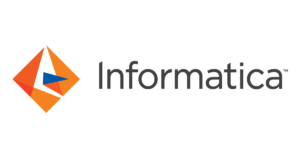
Since its founding in 1993, Informatica has provided a dizzyingly wide range of data warehouse tools, including tools for data engineering quality and cloud data integration. The warehouse’s capacity to facilitate the development of cloud-based data warehouses is very powerful.
5.Arm Treasure Data
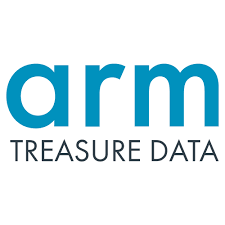
To more effectively tailor the marketing strategy, Treasure Data’s Customer Data Platform is built for precise customer targeting. Basically it is widely utilised in a variety of industries, including retail and gaming. Impressively, its IoT capabilities enables it to mine massive amounts of data from these many industries.

